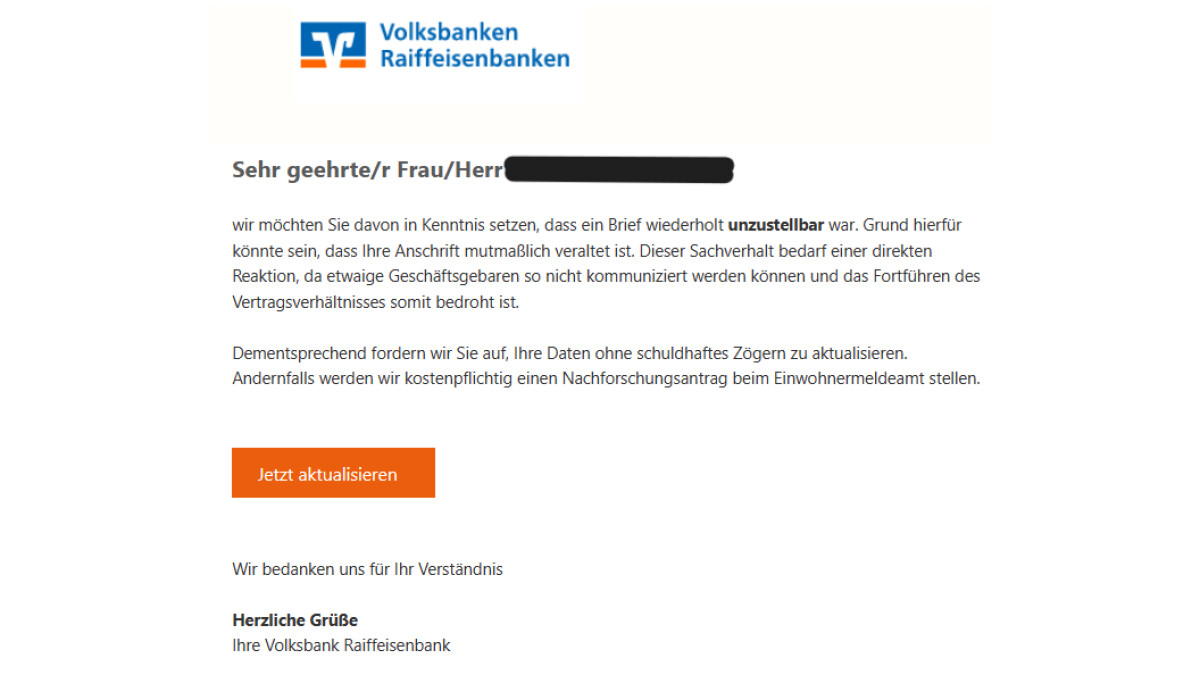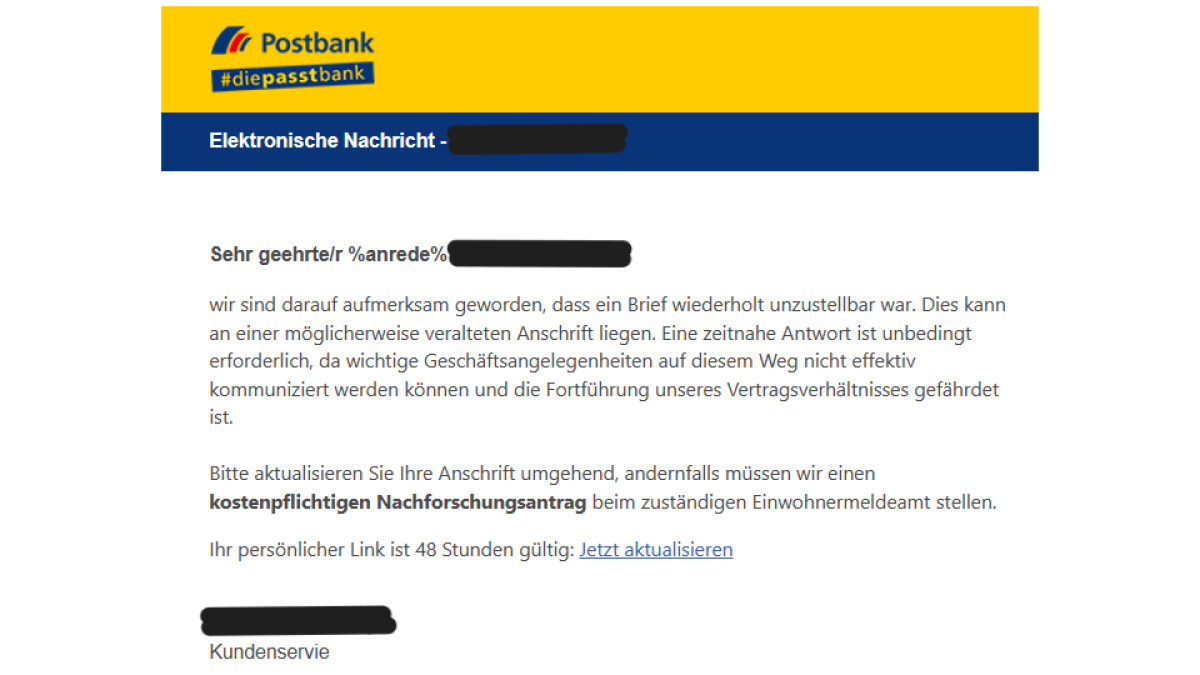You should currently take a close look at emails from your bank. Phishing scammers want to get your data in the name of two credit institutions. We’ll tell you what they are.
Beware of phishing emails. (Source: Rawpixel / depositphotos.com)
- Cybercriminals use phishing to get your bank details and steal your money.
- The customers of two banks in particular have to be careful at the moment.
- This is how you protect yourself from attempted fraud.
Bank customers are a particularly popular target for cybercriminals. Every day we receive reports of attempted fraud carried out in the name of credit institutions. The target of these scams is always the same: your sensitive data. The fraudsters want to use these to gain access to your bank account and plunder it.
Two banks are currently particularly hard hit by phishing attacks. The Volksbank and the Postbank. If you are one of their customers, you should be on your guard at the moment and carefully examine the emails in your inbox. So that you don’t fall for the scam, we’ll show you how to recognize it and protect yourself against phishing.
Banal excuse for data theft Despite the direct approach, this is phishing. (Source: consumer advice center)
In the current scam, the senders claim that a letter to you was repeatedly undeliverable. The address you provided is out of date, which is why your personal data needs to be updated immediately. If you do not comply with this request, not only is the contractual relationship at risk, it could allegedly result in a fee-based request for investigation from the residents’ registration office.
An attached link leads to the supposedly necessary update process. However, you should not follow this under any circumstances. Because it leads to a dangerous website. This is where the actual trap springs shut and your sensitive data is queried and ends up in the hands of cybercriminals.
Recognize the stitch With this stitch you will be put under additional pressure. (Source: consumer advice center)
In order to avoid financial damage caused by account takeover, it is important that you recognize the phishing email. This often works because of the impersonal salutation, but that is not the case with this scam. However, the sender address is dubious and your bank would never ask you to provide your details.
Putting pressure on someone is also a clear sign of attempted fraud. The criminals want to unsettle you by submitting a paid research application to the residents’ registration office. In the Postbank mail they add additional pressure with a 48-hour deadline. Always keep a cool head and ignore the empty threats.
If you are unsure whether an email is really from your bank, you can always contact customer service via official channels. However, the messages in question definitely do not come from Volksbank or Postbank and should end up in the spam folder unanswered.
Simple signs: This is what makes a phishing email
A first indication that you have received a phishing email: The email will ask you to confirm personal information or enter it on a website. This Under no circumstances should you comply with the demand. In addition, criminals often use the official logos of the companies they are copying in their emails, but not official sender addresses.
If the sender seems suspicious to you, you should read the email twice. You will often find spelling errors or inconsistencies in German grammar. The attackers usually do not write their own emails, but instead use automatically generated messages or translate known emails with a translation program. But why actually go to all this effort?
What do criminals achieve with phishing attacks?
Phishing is used on the Internet to collect real user data. These can be used to make money when email addresses, names and other information are sold for advertising purposes or passed on in criminal forums. With the data obtained, cyber criminals can also target future phishing attacks more specifically, making their attacks more effective.
Have you received a suspicious email?
Forward it to [email protected]
or follow us on:
Phishing checklist
- ✔
Spelling mistake? - ✔
Sensitive data requested? - ✔
Official logos? - ✔
Unknown sender?
Attachments and links contained in malicious emails often introduce malware or viruses to your computer. In addition, you should not simply ignore suspicious emails. Forward it to the email address above and help us report future phishing attacks.
More fraud warnings on netzwelt – stay one step ahead of cybercriminals
But phishing emails are not the only danger lurking on the Internet. In addition to attempted fraud, there are all sorts of viruses, Trojans and malware that can infect your computer. Unfortunately, data scandals are also part of everyday digital life. You can see the five most recent articles on the topic of “fraud warnings” below:
If you want to stay informed about the latest fraud reports, subscribe to netzwelt on Twitter, Facebook and Instagram. You can also find all articles on the topic on the next page.
- ” Tip: The best VPN providers for more security and data protection
- » Buy balcony power plant: Comparison of the best solar systems
Don’t miss anything with this NETWORK WORLDNewsletter
Every Friday: The most informative and entertaining summary from the world of technology!
